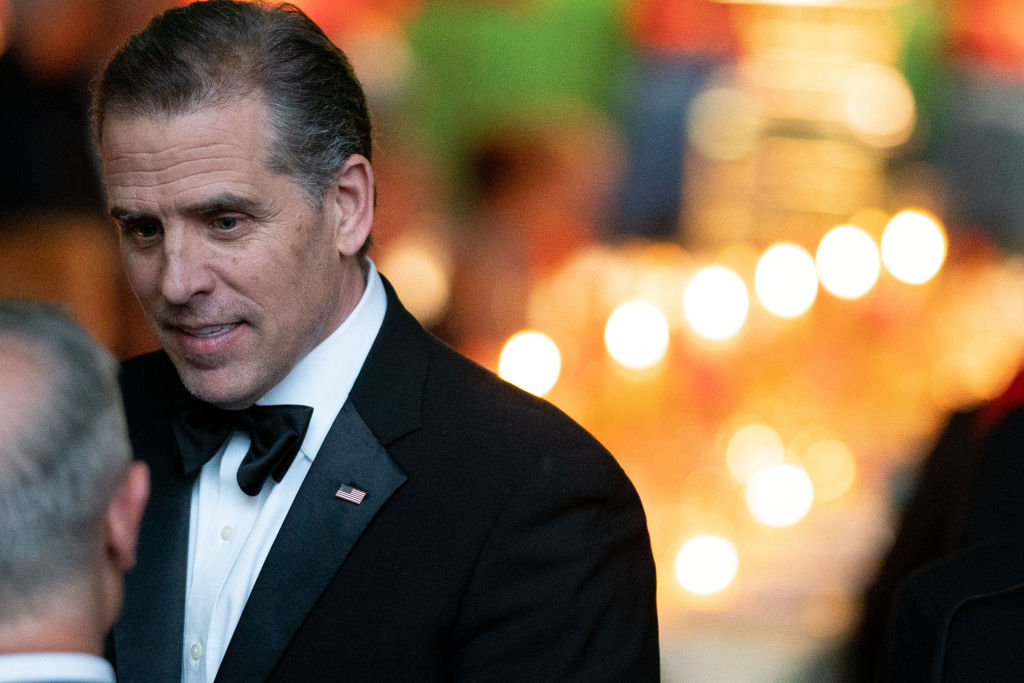
A week after Hunter Biden reached a plea deal on misdemeanor tax charges, Republicans in Congress are making clear they are not done with the President’s son. Fresh off an Internal Revenue Service whistleblower alleging that Biden received special treatment from the Justice Department, House Republicans are planning a new chapter in their investigation, which could possibly stretch into 2024 as the presidential campaign ramps up.
According to sources familiar with the matter, House GOP leadership is waiting for Hunter Biden’s arraignment, scheduled for July 26, as it prepares for a multi-pronged investigatory effort spearheaded by three committees: the Judiciary Committee, the Oversight Committee, and the Ways and Means Committee.
The panels are “pursuing a thorough investigation into this misconduct to deliver the transparency and accountability that the American people demand and deserve,” its three chairs—Reps. Jim Jordan of Ohio, James Comer of Kentucky, and Jason Smith of Missouri—said in a statement Wednesday.
The new phase of the inquiry stems from testimony provided last week to the Ways and Means Committee by Gary Shapley, an IRS official who supervised the agency’s role in the investigation. Asserting whistleblower protections, he claimed that Attorney General Merrick Garland prevented the Trump-appointed U.S. Attorney overseeing the probe from bringing more charges against the President’s son. Both Garland and the prosecutor, David Weiss, have strenuously denied the allegations, and the DOJ said when announcing the agreement, without elaboration, that the “investigation is ongoing.” Sources say that House Republicans are likely to call Weiss to testify on the matter in the coming months.
Shapley, a 14-year IRS employee, also told lawmakers the Justice Department denied requests from prosecutors to examine text messages in which Hunter Biden allegedly used his father as leverage to pressure a Chinese company to pay him. “I am sitting here with my father and we would like to understand why the commitment made has not been fulfilled,” Hunter Biden texted the CEO of a Chinese fund management company in 2017, according to testimony from Shapley. On Wednesday, President Joe Biden told reporters he wasn’t with his son during the exchange six years ago, when the elder Biden was no longer Vice President and not yet elected President.
Be that as it may, many Hill Republicans see the latest revelations as an opportunity to expand and accelerate an investigation that has been at the center of the conference’s agenda since assuming a slim majority in January but that has so far failed to deliver anything that incriminates the President. At the very least, they can hunt for evidence to determine whether Garland’s or Shapley’s account is true.
Read more: How Hunter Biden’s Scandals Compare to Those of Trump’s Family Members
Democrats argue that the latest iteration of the Hunter Biden probe is a cynical attempt to damage the President’s reputation going into his reelection bid. “This is just typical presidential year political theater and not serious oversight work,” a former Democratic congressional investigative counsel tells TIME, who requested anonymity because they still do work with the government. “The more media attention that a whistleblower seeks, in my experience, the less credible they’ve typically been.”
It’s an argument shared by other veterans of official Washington, including Ronald Weich, former assistant attorney general for legislative affairs and chief counsel to former Senators Harry Reid and Ted Kennedy. “I do not think this is an appropriate subject for congressional oversight, at least at this time,” he tells TIME.
Weich, now the dean of the University of Baltimore Law School, emphasizes that an IRS whistleblower could turn to the inspector general of either the Treasury Department or the Justice Department. “Running to Congress should not be the first avenue for a whistleblower,” he says. “And Congress should not be interfering in ongoing criminal investigations or prosecutions. I think the fact that he went to Congress suggests that this has more of a political motive.”
Another former high-level government official expressed skepticism over the complaints. “Whistleblowers frequently have agendas that explain their coming forward—sometimes the agendas are personal; in this day and age, they are increasingly political,” Michael Bromwich, a former federal prosecutor and Department of Justice Inspector General during the Clinton Administration, emails TIME. “Whistleblowers should not be dismissed out of hand, but their allegations also shouldn’t be treated as the gospel truth until fully vetted and tested.”
In the days since they released Shapley’s testimony, House Republicans have cited it as further material to pursue impeachment proceedings against Garland—an idea promoted by the likes of right-wing firebrands Marjorie Taylor Greene and Lauren Boebert. On Monday, Speaker Kevin McCarthy signaled a willingness to consider the measure. “If the whistleblowers’ allegations are true,” he tweeted, “this will be a significant part of a larger impeachment inquiry into Merrick Garland’s weaponization of DOJ.”
But for Democrats, the forthcoming proceedings, however they may play out, are poised to amount to more of a stunt than a serious investigation into alleged wrongdoing. “Merrick Garland has a pretty long track record,” says the former congressional counsel. “I find it pretty implausible that he would stake his career on trying to protect Hunter Biden.”
More Must-Reads from TIME
- Donald Trump Is TIME's 2024 Person of the Year
- Why We Chose Trump as Person of the Year
- Is Intermittent Fasting Good or Bad for You?
- The 100 Must-Read Books of 2024
- The 20 Best Christmas TV Episodes
- Column: If Optimism Feels Ridiculous Now, Try Hope
- The Future of Climate Action Is Trade Policy
- Merle Bombardieri Is Helping People Make the Baby Decision
Contact us at letters@time.com